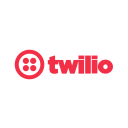CallHippo vs Aircall: Which business phone system is right for you?
- 01CallHippo vs Aircall: overview
- 02What's the difference between CallHippo and Aircall?
- 03CallHippo pros and cons
- 04Aircall pros and cons
- 05CallHippo compared to Aircall
- 06Aircall compared to CallHippo
- 07Features comparison
- 08CallHippo vs Aircall: Which is the best for your business?
- 09Promotions on Call Centers software
- 10Alternatives to CallHippo & Aircall
Effective business communication is crucial for boosting customer satisfaction and supporting the long-term sustainability of a company. Yet, managing and optimizing communication channels can be a time-consuming process, especially for businesses with growing customer bases. That’s where VoIP (Voice over Internet Protocol) solutions come in. These platforms offer advanced features like call routing, analytics, and integrations that streamline communication management and enhance overall efficiency.
With numerous options available, finding the right VoIP solution for your business can be challenging. In this article, we compare two popular solutions—CallHippo vs Aircall. By analyzing their features, pricing structures, and key differences, you can decide which is the best fit for your business communication needs.
CallHippo vs Aircall: overview
CallHippo and Aircall are two prominent contenders in the category of communication systems, each offering a distinct set of features tailored to meet the diverse communication needs of modern enterprises.
CallHippo is recognized for its user-friendly interface and quick setup, making it an excellent choice for small to mid-sized businesses looking to enhance their customer service and sales operations. On the other hand, Aircall is celebrated for its advanced collaboration tools and seamless integrations with a wide array of business applications, making it a strong option for larger teams or businesses with more complex communication requirements.
Now, let's explore the CallHippo vs. Aircall comparison to help you make an informed decision when choosing the most suitable VoIP solution for your business communication needs.
What's the difference between CallHippo and Aircall?
CallHippo and Aircall are two leading VoIP platforms designed to streamline business communications, each offering a robust set of features suited for different business needs. While both platforms provide essential tools for call management, analytics, and integrations, there are a couple of key differences that set them apart.
The first major difference lies in their pricing models. CallHippo is known for its affordability, particularly appealing to small and medium-sized enterprises (SMEs). Pricing is transparent, with detailed plans available on the website, including a basic plan for startups and a more advanced option for growing businesses. CallHippo also offers a pay-as-you-go model, making it a flexible choice for businesses with varying call volumes. On the other hand, Aircall’s pricing is generally more aligned with larger businesses and enterprises. While their pricing is also available online, the costs are higher, reflecting the advanced features and broader integrations that Aircall offers. Unlike CallHippo, Aircall does not provide a pay-as-you-go model, which could be a consideration for businesses looking for more flexibility.
The second significant difference between CallHippo and Aircall is the range and depth of integrations. Aircall excels in this area, offering over 100 integrations with popular CRM systems, helpdesk tools, and productivity apps, such as Salesforce, HubSpot, Zendesk, and Slack. This extensive integration ecosystem makes Aircall a strong contender for businesses that rely heavily on multiple software platforms. In comparison, CallHippo’s integration options, while still robust, are more limited. CallHippo integrates with essential CRM tools like Zoho and HubSpot, but its offerings are not as extensive as Aircall’s.
Another notable difference is that Aircall offers advanced features such as real-time call monitoring and coaching, which are particularly beneficial for larger teams. CallHippo, while feature-rich, does not offer the same level of real-time call management capabilities, making it a better fit for smaller teams or businesses with less complex communication needs.
CallHippo pros and cons
What are the advantages of CallHippo?
- Affordable pricing: CallHippo offers competitive pricing, especially attractive for small and medium-sized businesses. It has transparent pricing plans and a pay-as-you-go option, allowing businesses to scale their usage according to needs without committing to high upfront costs.
- User-friendly interface: CallHippo is known for its intuitive and easy-to-use interface, making it accessible for users with varying levels of technical expertise. This simplicity helps teams quickly adapt to the platform without extensive training.
- Global virtual numbers: CallHippo provides access to virtual phone numbers from over 50 countries, allowing businesses to establish a local presence in international markets easily. This feature is particularly valuable for companies with global customer bases.
- Seamless CRM integrations: CallHippo integrates well with popular CRM platforms like Zoho, HubSpot, and Salesforce. These integrations enable teams to manage customer interactions more effectively by linking call data with their CRM systems.
- Call analytics and reporting: CallHippo offers robust call analytics and reporting tools, giving businesses valuable insights into their communication performance. These features help in monitoring call quality, tracking team performance, and making data-driven decisions.
What are the disadvantages of CallHippo?
- Limited advanced features: Compared to some competitors, CallHippo lacks certain advanced features like real-time call monitoring and team collaboration tools. This makes it less suitable for larger enterprises with more complex communication needs.
- Integration limitations: While CallHippo integrates with several popular CRMs, its overall integration ecosystem is more limited than some competitors like Aircall, which offers a broader range of integrations with various business tools.
- Scalability issues: CallHippo is ideal for SMEs, but as businesses grow, they might find the platform’s scalability and feature set somewhat restrictive compared to more enterprise-focused solutions.
- Support availability: Some users have reported that customer support can be slow at times, particularly during peak hours or for complex technical issues, which can be frustrating when immediate assistance is needed.
- Basic UI/UX design: While the interface is user-friendly, it’s relatively basic and may not offer the polished experience that some users expect from a more advanced or modern VoIP platform. This might impact the overall user experience for those seeking a more refined design.
Compare CallHippo to other tools
Aircall pros and cons
What are the advantages of Aircall?
- Extensive integrations: Aircall offers over 100 integrations with popular business tools, including CRMs like Salesforce and HubSpot, helpdesk software like Zendesk, and productivity apps like Slack. This extensive integration ecosystem makes it a powerful solution for businesses that rely on multiple software platforms.
- Advanced call management features: Aircall provides advanced features such as real-time call monitoring, call whispering, and call recording. These tools are particularly beneficial for teams that need to oversee and improve call performance, such as sales and support teams.
- Scalability: Aircall is designed to scale with growing businesses. It can accommodate the needs of larger teams and enterprises, offering features that support complex communication workflows and higher call volumes.
- Team collaboration tools: Aircall includes features that enhance team collaboration, such as shared call inboxes and the ability to assign and tag calls. These tools help teams work more efficiently, especially in customer support environments.
- Global presence: Aircall provides access to local and toll-free numbers in over 100 countries, making it an excellent choice for businesses with international operations. This global reach helps companies establish a local presence in multiple markets.
What are the disadvantages of Aircall?
- Higher pricing: Aircall's pricing is generally higher compared to some of its competitors, which might be a barrier for small businesses or startups with limited budgets. The lack of a pay-as-you-go option also reduces flexibility in managing costs.
- Complex setup for small teams: While Aircall offers powerful features, the initial setup and configuration might be complex for smaller teams or businesses with less technical expertise. This complexity can lead to a longer onboarding process.
- Limited offline functionality: Aircall is primarily a cloud-based solution, which means it relies heavily on a stable internet connection. Users might experience limitations in functionality when offline or in areas with poor internet connectivity.
- Resource-intensive: Some users have reported that Aircall can be resource-intensive, particularly on lower-end devices. This can impact the performance of other applications or lead to slower response times during calls.
- Customer support concerns: While Aircall generally provides good customer support, some users have noted that response times can be slow, especially during peak periods. This can be an issue when immediate assistance is required for urgent matters.
Compare Aircall to other tools
CallHippo compared to Aircall
CallHippo and Aircall are both robust VoIP solutions, but they cater to different business needs. CallHippo is ideal for small to medium-sized enterprises due to its affordability, user-friendly interface, and essential features like global virtual numbers and basic CRM integrations.
In contrast, Aircall is better suited for larger teams or enterprises that require advanced features such as real-time call monitoring, extensive integrations, and superior scalability. While Aircall offers a broader range of tools and integrations, its higher pricing may not be as accessible for smaller businesses, making CallHippo a more budget-friendly option.
Is CallHippo better than Aircall?
Whether CallHippo is better than Aircall depends on your specific business needs. CallHippo excels for small to medium-sized businesses with its cost-effective pricing and straightforward feature set, offering a reliable, easy-to-use platform for essential communication needs. It provides global virtual numbers and basic CRM integrations at an accessible price point, making it a great choice for budget-conscious businesses.
On the other hand, Aircall offers more advanced features like real-time call monitoring and deeper integration options, making it better suited for larger organizations with complex communication requirements.
What is CallHippo best used for?
CallHippo is best used for small to medium-sized businesses seeking an affordable and easy-to-use VoIP solution to enhance their communication capabilities. It excels in providing global virtual numbers, essential call management features, and seamless integrations with popular CRM platforms like Zoho and HubSpot.
CallHippo is particularly effective for businesses that need a straightforward, scalable phone system to manage customer service and sales operations. Its user-friendly interface and cost-effective pricing make it ideal for companies looking to establish a local or international presence without the complexity and high costs associated with more advanced VoIP systems.
Can CallHippo replace Aircall?
CallHippo can replace Aircall for small to medium-sized businesses that prioritize affordability and simplicity in their VoIP solution. While CallHippo offers essential features like global virtual numbers, call analytics, and basic CRM integrations, it may not match Aircall's advanced capabilities such as real-time call monitoring, extensive team collaboration tools, and broader integration options.
For businesses with less complex communication needs, CallHippo provides a cost-effective and user-friendly alternative. However, larger enterprises or teams requiring more sophisticated features and scalability may find Aircall to be a better fit, making CallHippo more suitable for smaller-scale operations.
Is CallHippo cheaper than Aircall?
Yes, CallHippo is generally cheaper than Aircall, making it a more budget-friendly option for small to medium-sized businesses. CallHippo offers transparent pricing with lower-cost plans and a pay-as-you-go option, allowing businesses to manage expenses more flexibly. In contrast, Aircall’s pricing is higher, reflecting its advanced features, extensive integrations, and scalability, which are more suited for larger enterprises.
While Aircall provides more robust functionality, the cost difference makes CallHippo an attractive choice for businesses that need essential VoIP features without the higher financial commitment associated with Aircall.
Is there a better Call Centers software than CallHippo?
When evaluating VoIP solutions like CallHippo, it's important to consider whether there might be an alternative that better fits your business's specific communication needs.
Prominent alternatives to CallHippo include Aircall, RingCentral, Vonage, Nextiva, and 8x8.
The choice of a VoIP platform depends on factors such as your business's size, feature requirements, integration needs, and budget. While CallHippo is known for its affordability and user-friendly interface, other solutions may offer more advanced features, better scalability, or broader integration options that align more closely with your organization's communication strategy.
Aircall compared to CallHippo
Aircall is a more feature-rich VoIP solution compared to CallHippo, making it better suited for larger businesses or teams with complex communication needs. It offers advanced features like real-time call monitoring, extensive team collaboration tools, and a wide range of integrations with various business applications.
While CallHippo provides a more affordable and user-friendly option, particularly for small to medium-sized businesses, Aircall’s higher pricing reflects its superior scalability and functionality. For companies seeking a more robust and comprehensive communication platform, Aircall may offer greater value, though at a higher cost compared to CallHippo.
Is Aircall better than CallHippo?
Aircall is better than CallHippo if your business requires advanced communication features and extensive integration capabilities. It’s designed to handle the complexities of larger teams and enterprises, offering tools that enhance collaboration, monitor performance in real-time, and integrate seamlessly with a wide array of business applications.
While Aircall comes at a higher cost, its robust functionality and scalability make it a more suitable choice for businesses with intricate communication needs. However, for smaller businesses that prioritize affordability and ease of use, CallHippo might be the more practical option, providing essential features at a lower price point.
What is Aircall best used for?
Aircall is best used for businesses that require a robust and scalable VoIP solution with advanced features for managing complex communication workflows. It excels in environments where real-time call monitoring, team collaboration, and extensive integrations with CRM and helpdesk tools are essential.
Aircall is particularly well-suited for larger teams in sales, customer support, and remote work settings, where seamless communication and collaboration are critical. Its ability to integrate with over 100 business applications makes it ideal for companies that rely on a diverse software ecosystem to manage their operations and enhance team productivity.
Can Aircall replace CallHippo?
Aircall can replace CallHippo, particularly for businesses seeking more advanced communication features and scalability. While CallHippo is an affordable and user-friendly VoIP solution tailored for small to medium-sized businesses, Aircall offers more robust capabilities such as real-time call monitoring, extensive team collaboration tools, and a wider range of integrations with CRM and business applications.
For companies with growing teams or more complex communication needs, Aircall provides a comprehensive platform that can effectively replace CallHippo. However, for smaller businesses with basic requirements, CallHippo's simplicity and lower cost might still be preferable.
Is Aircall cheaper than CallHippo?
Aircall is generally not cheaper than CallHippo. Aircall's pricing reflects its advanced features, extensive integrations, and scalability, making it a more premium option in the VoIP market. It is designed to cater to larger businesses or teams with complex communication needs, which justifies its higher cost.
In contrast, CallHippo offers more affordable pricing plans, making it a better fit for small to medium-sized businesses looking for essential VoIP features without the higher expense. CallHippo's lower pricing and flexible options make it more accessible for businesses with tighter budgets or simpler communication requirements.
Is there a better Call Centers software than Aircall?
When considering alternatives to Aircall, it's important to assess whether another VoIP platform might better meet your unique business communication needs.
Some noteworthy competitors to Aircall include CallHippo, Dialpad, OpenPhone, Twilio, and Nextiva.
The choice of a VoIP solution depends on your business's specific requirements, such as the size of your team, the complexity of your communication workflows, and the integrations you need. While Aircall offers advanced features, real-time monitoring, and extensive integrations, other platforms may excel in areas like pricing flexibility, ease of use, or specialized features for smaller teams.
Features comparison
Aircall Leads CallHippo in Integration Capabilities for Enhanced Workflow
In the evolving digital landscape, the ability of a tool to blend seamlessly with other systems is paramount for maintaining an efficient workflow. Both CallHippo and Aircall offer robust integration capabilities; however, Aircall edges out slightly due to its extensive range of integration possibilities. Aircall integrates effortlessly with over 100 major platforms, including CRMs like Salesforce and HubSpot, helpdesk software like Zendesk, e-commerce platforms, and various productivity tools like Slack. This vast integration network allows businesses to create a cohesive, interconnected digital workspace, enhancing overall team efficiency.
While CallHippo also supports integration with many popular software applications, the breadth of options is somewhat narrower, making Aircall the superior choice for companies that rely on a diverse software ecosystem to streamline their operations. This advantage can be crucial for teams looking to optimize their workflow across multiple platforms.
CallHippo Outshines Aircall in Delivering Superior Customer Experience
Delivering a quality customer experience is where CallHippo shines, surpassing Aircall in certain key areas. CallHippo's intelligent call routing system ensures that incoming calls are directed to the right agent quickly, providing personalized responses that boost customer satisfaction and retention over the medium to long term. For example, CallHippo’s advanced call forwarding feature allows businesses to route calls to different devices or locations seamlessly, ensuring no customer inquiry goes unanswered. Additionally, features like customizable on-hold music and voicemail transcription further enhance the customer experience, making interactions smoother and more engaging.
While Aircall also offers similar capabilities, CallHippo’s focus on these comprehensive, customer-centric features gives it a distinct edge in creating a more personalized and effective customer service environment, which is crucial for businesses aiming to build strong, long-lasting customer relationships.
Aircall Leads CallHippo with Superior Live Call Monitoring for Enhanced Training
Where Aircall takes the lead over CallHippo is in its robust live call monitoring feature, which provides a significant advantage for teams focused on quality assurance and training. This tool allows supervisors to listen to live calls without interrupting the conversation, enabling them to provide real-time feedback and coaching to agents. For example, during a sales call, a supervisor can offer immediate guidance to an agent via a whisper function, helping improve performance on the spot. This capability is particularly valuable in high-stakes environments like customer support or sales, where timely intervention can make a significant difference.
In contrast, CallHippo lacks this level of live supervision, limiting its ability to offer real-time coaching and immediate corrective action. This makes Aircall a stronger choice for businesses that prioritize continuous improvement and hands-on training, ensuring that quality is maintained throughout customer interactions.
Both CallHippo and Aircall Excel in IVR System Customization for Enhanced Efficiency
In terms of their IVR (Interactive Voice Response) systems, both CallHippo and Aircall prove to be equally effective, offering robust features that enhance customer service efficiency. Both platforms allow businesses to fully customize automated greetings and menu options, ensuring that callers are seamlessly directed to the appropriate department or agent based on their specific needs. For instance, a customer calling about a billing issue can be routed directly to the finance department through a simple, intuitive menu setup. This level of customization not only streamlines the customer journey but also reduces wait times and improves overall satisfaction.
Additionally, both tools support multi-level IVR, which is particularly beneficial for larger organizations with complex department structures. This feature allows for deeper menu hierarchies, enabling more precise routing of calls, whether it's for sales inquiries, technical support, or general customer service. As a result, both CallHippo and Aircall significantly contribute to improving the efficiency and effectiveness of customer interactions, making them strong contenders in this aspect of VoIP solutions.
CallHippo Excels in Enhancing and Portraying Your Brand's Professional Image
Another area where CallHippo stands out is in its ability to help businesses maintain and portray a strong brand image through its extensive feature set. CallHippo offers customizable caller IDs, professional on-hold music, and personalized voicemail greetings, all of which contribute to a polished and consistent brand presentation during customer interactions. For example, a company can set up a branded voicemail greeting that reflects its corporate tone, reinforcing its professional image even when agents are unavailable. Additionally, CallHippo’s global virtual numbers allow businesses to present a local presence in multiple markets, further enhancing their credibility and accessibility.
While Aircall is a powerful tool with robust communication features, it doesn't offer the same level of specific customization geared toward showcasing and enhancing your brand's image. CallHippo’s focus on these details makes it particularly effective for businesses aiming to project professionalism and reliability in every customer interaction, ensuring that the brand is consistently represented across all touchpoints.
Aircall Enhances Communication Efficiency with Voicemail Transcription, Outpacing CallHippo
Aircall offers a unique feature of voicemail transcription that sets it apart from CallHippo. With Aircall, voicemails are automatically transcribed into text and sent directly to the recipient’s email, providing a quick and convenient way to review missed messages. For example, if a sales representative misses a call while in a meeting, they can receive a transcription of the voicemail in real-time, allowing them to quickly assess the urgency and respond appropriately without needing to listen to the entire message. This feature significantly enhances communication efficiency, enabling teams to manage missed calls more effectively and ensuring that no important details are overlooked.
While CallHippo offers strong voicemail management, it lacks this automated transcription capability, making Aircall a superior choice for businesses that prioritize speed and accuracy in their communication workflows.
Aircall Outshines CallHippo for Intuitive User Experience
When it comes to utilizing SaaS software, ease-of-use is a vital feature for any business, particularly those that rely on seamless communication tools. Aircall surpasses CallHippo in this aspect due to its intuitive, user-friendly interface.
Designed with simplicity in mind, Aircall’s dashboard is clean and easy to navigate, allowing users to manage calls, access analytics, and integrate with other tools without a steep learning curve. For example, features like drag-and-drop call flows and one-click integrations with popular CRMs make Aircall especially accessible, even for teams without extensive technical expertise. In contrast, while CallHippo is also user-friendly, its interface can feel less streamlined, especially for those managing larger teams or more complex communication workflows.
CallHippo vs Aircall: Which is the best for your business?
CallHippo is the best tool for you if:
- You need an affordable VoIP solution that offers essential features for small to medium-sized businesses without compromising on quality or functionality.
- Your business prioritizes a user-friendly interface that requires minimal training, allowing your team to quickly adapt and start using the platform effectively.
- You require global virtual numbers to establish a local presence in multiple countries, making it easier to connect with international customers.
- You seek seamless integration with popular CRM systems like Zoho and HubSpot to streamline your sales and customer service processes.
- You want customizable call management features, such as call forwarding and on-hold music, to enhance your brand's professionalism and customer experience.
Aircall is the best tool for you if:
- You need a VoIP solution with advanced features like real-time call monitoring and team collaboration tools to optimize communication and improve agent performance.
- Your business relies on extensive integrations with over 100 platforms, including CRMs, helpdesk software, and productivity tools, to create a cohesive and efficient digital workspace.
- You manage a large or growing team and require scalable communication solutions that can accommodate increasing call volumes and complex workflows.
- You prioritize enhanced customer service capabilities, such as voicemail transcription, to ensure quick, efficient responses to missed calls and seamless communication processes.
- Your organization values a polished user experience with a modern, intuitive interface that supports quick onboarding and minimal technical difficulties for team members.










